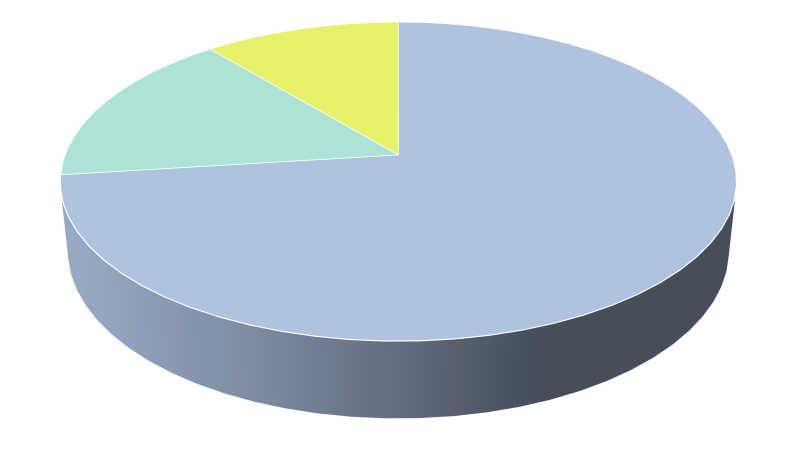We run First-in-Human and Early Human Feasibility medical device studies with the urgency, accountability, and execution discipline early-stage programs demand — combining sponsor-level perspective with deep clinical, regulatory, and operational expertise to deliver fast startup, efficient enrollment, and high-quality clinical data in strategically chosen locations in Eastern Europe and Central Asia.


Head of Business Development
*Timelines vary by indication and country. We provide realistic country-level feasibility projections.
Turning breakthrough ideas into clinical evidence takes focus, resilience, and execution discipline.
Early-stage clinical trials don’t fail because of the science. They fail when execution becomes unpredictable.
When timelines are tight and decisions carry real cost, early-stage clinical trials can quickly become stressful due to:
You shouldn’t have to chase your CRO for answers while trying to move your program forward.
Clinical Accelerator is built specifically for early-stage clinical trials of novel medical devices, where speed, clarity, and quality must coexist.
We’ve helped 100+ sponsors run early-stage medical device trials across multiple therapeutic areas.
Our clients include emerging and established medical technology companies from the United States, Europe, Australia, Israel, and Asia.


Founded in Academia we maintain close ties with leading international academics and key opinion leaders (KOLs) in cardiovascular medicine, ensuring expert guidance and innovation in clinical research.
Our Academic Advisors and Partners:
We deliver clinical trial execution across Eastern Europe and Central Asia.
Why sponsors choose these regions:

If you are looking for a CRO that can ensure a smooth and efficient medical device clinical trial in Georgia, Clinical Accelerator is your answer. I worked with Clinical Accelerator on Innovalve’s First in Human trial in Europe on our transcatheter mitral vale replacement device. They were a critical player in site feasibility visits and ‘opening up the door’ to the perfect partners, and were involved in patient recruitment and study monitoring. The clinical trial understanding and level of GCP awareness in Georgia is parallel to many other European countries. Overall, the combination of Clinical Accelerator’s professionalism together with the unsurpassed level of site cooperation enabled our FIH Trial to be a huge success.

We have been working with Clinical Accelerator for the last 12 months. Under Nik Nikitin’s leadership, the Clinical Accelerator team demonstrated commitment to ensuring we met our study objectives. We were impressed with their professionalism, efficiency and diligence in managing paperwork and logistics, their responsiveness, and their ability to deliver on enrolment targets even during a pandemic.

Not just a CRO but a true clinical partner! Clinical Accelerator is the perfect choice to get a novel, early stage therapy concept into a first-in-human trial. Their professionalism and the quality of service is exceptional, and we found Nikolai Nikitin and his clinical networks to be true partners, ensuring access to the right patient population at enrolment rates significantly higher than other CRO services we used in the past.

The people at Clinical Accelerator make the difference. Their commitment, integrity and diligence to a project is unparalleled. Their relationship with sites and investigators and knowledge of local markets provides great comfort and confidence in completing projects in a timely fashion and within budget.

We have engaged Dr Nikitin and his team for a challenging feasibility study with our medical device. From the start, we were impressed by their collaborative approach to enable us to select the right clinical sites. Whether on regulatory knowledge and submissions, customs clearance, site relationships or site monitoring, the highly qualified and very dedicated team has gone the extra mile to make the study successful and deliver high quality services on all levels. In sometimes difficult situations they were able to offer solutions and showed a flexible attitude. We are highly satisfied with our collaboration, and work is underway to perform another study using the services of the Clinical Accelerator team.

The effective, knowledgeable and high motivated team efforts by Dr. Nikitin and his colleagues at Clinical Accelerator has been critically important in the managing of logistical and regulatory issues for our clinical trials . This effort has played a central role in the rapid and successful progression of our clinical development program.

The spirit of dedication, diligence, cooperation and initiative at Clinical Accelerator makes all the difference. Combining experience and hard work, the Clinical Accelerator team managed to both overcome various hurdles to the setting up of our trial and expedite enrolment into the study. Our experience was such that we’ve decided to use Clinical Accelerator’s services for another trial, currently underway.

We hired Clinical Accelerator to implement a clinical study for an allergy product we manufacture. The project was implemented in a very short time and strictly within the timelines and budget we had agreed. We were extremely satisfied with the quality of the work and the teamwork provided by the staff of Clinical Accelerator. We have done many clinical trials over the years and we were very impressed with the work done by Clinical Accelerator. We intend to use them again for our next project. It is a pleasure to work with this company.

We want to thank the whole team at Clinical Accelerator for the great support and helpful service they provided for our clinical projects in the Ukraine, from clearing customs for the IMPs to monitoring the clinical sites professionally. We especially appreciated that even after the project was finished we received quick and reliable responses to all of our questions that came up later.

We have developed a great collaboration with the Clinical Accelerator Team. Their professionalism and dedication to our clinical development is evident on a daily basis. We value and very much appreciate their partnership and execution of our project. We want to thank Clinical Accelerator for their efficiency and expertise in medical device clinical trial development and would highly recommend their services.

Clinical Accelerator is a very competent CRO that conducts clinical trials in Eastern Europe. The company has an outstanding staff of dedicated healthcare professionals (primarily medical doctors). This group has extensive knowledge of methods that enable conduction of cost-effective clinical trials on time and within budget. I highly recommend Clinical Accelerator if you want solid results at a reasonable cost. We are using Clinical Accelerator for a Phase I trial but definitely will use them in our advanced trials also.